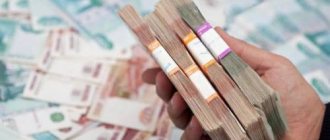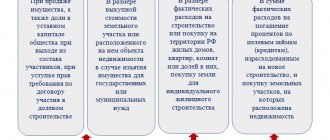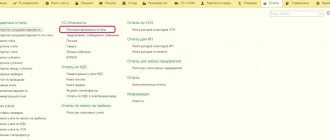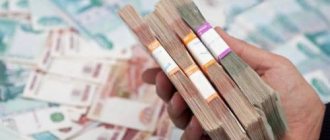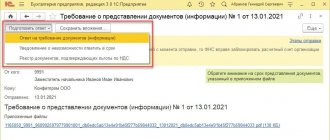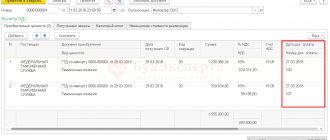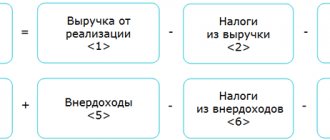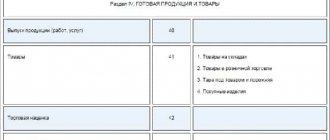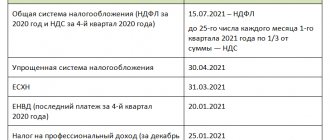What is not subject to VAT
Upon careful study of the provisions of Art. 149 of the Tax Code of the Russian Federation, we can conclude that on the territory of the Russian Federation, VAT is not assessed on the sale of the following goods:
- Medical equipment and medical products according to special lists approved by the Government of the Russian Federation (subclause 1, clause 2, article 149 of the Tax Code of the Russian Federation).
- Technical means that can be used for the rehabilitation of disabled people or the prevention of disability. The detailed list was approved by Decree of the Government of the Russian Federation dated September 30, 2015 No. 1042.
- Food products produced by canteens of medical and educational institutions and sold in such institutions. Food products produced at public catering establishments and sold to canteens in medical and educational institutions (subclause 5, clause 2, article 149 of the Tax Code of the Russian Federation and letter of the Federal Tax Service of Russia dated October 19, 2011 No. ED-4-3 / [email protected] ). Separately, the Ministry of Finance of Russia, in a letter dated September 14, 2009 No. 03-07-14/95, indicated that this benefit cannot be applied to individual entrepreneurs, although arbitration courts have previously repeatedly expressed the opposite point of view (Determination of the Supreme Arbitration Court of the Russian Federation dated February 7, 2007 No. 649/07, resolution FAS Central District dated May 20, 2008 No. A68-668/07-22/14).
- Goods from duty-free shops, if such goods are placed under the customs procedure (subclause 18, clause 2, article 149 of the Tax Code of the Russian Federation).
- Products of own production of taxpayers operating in the field of agricultural production, if the share of its sales is at least 70%. In this case, products issued as payment in kind and sold for the organization of public catering for workers engaged in agricultural work are not subject to VAT (subclause 20, clause 3, article 149 of the Tax Code of the Russian Federation).
- Ores and concentrates of valuable metals, as well as the metals themselves (subclause 9, clause 3, article 149 of the Tax Code of the Russian Federation).
- Rough diamonds (subclause 10, clause 3, article 149 of the Tax Code of the Russian Federation).
- Goods supplied as part of the provision of gratuitous assistance to the Russian Federation. Excise goods are not included in this number (subclause 12, clause 3, article 149 of the Tax Code of the Russian Federation).
More details about the list contained in Art. 149 of the Tax Code of the Russian Federation, read the material “Art. 149 of the Tax Code of the Russian Federation: questions and answers.”
When selling goods listed in clause 3 of Art. 149 of the Tax Code of the Russian Federation, you can refuse VAT exemption (clause 5 of Article 149 of the Tax Code of the Russian Federation). Waiver of VAT for transactions with goods from clause 2 of Art. 149 of the Tax Code of the Russian Federation is impossible.
Read about the procedure for such a refusal in the article “How to refuse VAT exemption” .
You can refuse the VAT benefit by sending an application to the territorial Federal Tax Service. The application is drawn up in any form. In this case, it is necessary to meet the deadline by the 1st day of the month of the tax period in which the company intends to stop using these privileges (taking into account the recommendations set out in the letter of the Federal Tax Service of Russia dated August 26, 2010 No. ШС-37-3/10064).
An example of a refusal application is available in the material “Sample application for refusal of VAT exemption” .
VAT exemption: when possible
In matters of exemption of medical goods and services from VAT, Article 149 of the Tax Code of the Russian Federation (clause 1, clause 2) gives clear instructions: a zero tax rate applies to Russian and foreign medical products that are included in the List approved by the Government of the Russian Federation.
The latest and current edition of the List of services and products, the import and sale of which are not taxed, is set out in Decree of the Government of the Russian Federation dated September 30, 2015 No. 1042.
According to the document, sellers and distributors will not have to pay taxes for the following categories of goods:
- medical instruments and strategic products (surgical instruments, radiation installations, examination equipment, laboratory kits, etc.);
- lenses for ophthalmic use and spectacle frames;
- devices for the rehabilitation of disabled people (motorized wheelchairs, manually operated vehicles, equipment for bathrooms, books with a special font, etc.);
- goods for prosthetic and orthopedic purposes, as well as materials for their production.
As for medical services, the implementation of which, according to the law, is not subject to VAT, its preferential list includes:
- service provided for health insurance;
- emergency medical services;
- medical care for pregnant women and newborns, disabled and seriously ill people;
- pathological services.
The absence of the need to pay taxes for medical goods and services implies, however, that the selling company provides special documentation to the tax authorities.
We are talking about submitting registration certificates, licenses, contracts with suppliers of preferential category products, bank statements on financial transactions for the supply of goods, as well as all technical documentation for goods: manufacturer certificates, national and industry standards.
Important material about co-borrowers on a mortgage loan. A safe deposit box is a guarantee of the safety of your funds. Find out how to use it in our article!
You will learn how to buy an apartment for cash in our thematic material at the link.
Medical equipment not subject to VAT
VAT is not assessed on the sale of medical goods produced in Russia and abroad. The list of such goods was approved by the Government of the Russian Federation in Decree No. 1042 dated September 30, 2015 (subclause 1, clause 2, article 149 of the Tax Code of the Russian Federation) and includes medical products.
To qualify for VAT exemption, a taxpayer must have a registration certificate.
Attention! Hint from ConsultantPlus: There is no need to submit the registration certificate along with the declaration to the inspectorate. You will provide a copy of it if...(read more about this and other conditions for VAT exemption in K+).
Classification of VAT benefits
Exemption from VAT is provided for in Article 149 of the Tax Code of the Russian Federation. Everyone knows that benefits under this article are provided to:
- when selling certain types of goods (works, services);
- certain categories of firms and entrepreneurs;
- when carrying out certain operations.
The first group of preferential goods includes medical goods. And many are mistaken in believing that the only requirement for their VAT exemption is compliance with the government list.
Results
Types of goods not subject to VAT are indicated in paragraphs. 2 and 3 Article 149 of the Tax Code of the Russian Federation. Those of them that are related to medical equipment, medical products, and rehabilitation means for the disabled are specifically spelled out in a special resolution of the Government of the Russian Federation. For these goods, as well as food products produced and consumed in medical and educational institutions, non-taxation of VAT is mandatory. For other goods listed in Art. 149 of the Tax Code of the Russian Federation, refusal to apply the benefit is possible. To refuse, you will need to send a special application to the Federal Tax Service.
Sources: Tax Code of the Russian Federation
You can find more complete information on the topic in ConsultantPlus. Free trial access to the system for 2 days.
How is VAT taxed on the sale of medical equipment?
Sales of medical equipment are not subject to VAT if medical goods are exempt from VAT.
If the exemption does not apply, then the sale of medical equipment is subject to VAT in the general manner: at a rate of 10% or 18%.
Exemption from VAT is valid subject to simultaneous compliance with the following conditions (clause 1, clause 2, article 149 of the Tax Code of the Russian Federation).
Firstly, medical equipment must be included in the List of medical goods, the sale of which is exempt from VAT (approved by Decree of the Government of the Russian Federation of September 30, 2015 N 1042).
Compare the name of your equipment and its code according to OKPD2 (OKP for registration before January 1, 2022) or code according to the EAEU Commodity Code for Foreign Economic Activity with the name and codes in the List. If they comply, you are eligible for exemption. This follows from the List itself, Notes 1, 2 to it.
Secondly, for medical equipment from Sec. 1 of the List, you must have a registration certificate (clause 1, clause 2, article 149 of the Tax Code of the Russian Federation).
There is no need to submit the registration certificate along with the declaration to the inspectorate. You will provide a copy of it if the inspectorate requests it when checking a VAT return (Letters of the Ministry of Finance of Russia dated 04/01/2016 N 03-07-11/18691, dated 09/04/2014 N 03-07-07/44461).
A license is not required for VAT exemption on the sale of medical equipment. This is due to the fact that this activity is not licensed (clause 6 of article 149 of the Tax Code of the Russian Federation, part 1 of article 12 of the Licensing Law).
an invoice for the sale of medical equipment, which is exempt from VAT (clause 1, clause 3, article 169 of the Tax Code of the Russian Federation).
If, along with the sale of such equipment, you carry out transactions subject to VAT, then you need to keep separate records (clause 4 of Article 149 of the Tax Code of the Russian Federation).
It is necessary to take into account separately both the operations for the sale of medical equipment and the “input” VAT on them. This is due to the fact that “input” VAT on these operations is not deducted, but is taken into account in the cost of equipment (clause 1, clause 2, clause 4, article 170 of the Tax Code of the Russian Federation).
to refuse the VAT exemption for the sale of medical equipment.
How is VAT assessed on the sale of components and spare parts for medical equipment?
There is no need to charge VAT on accessories if, according to the registration documents, the accessories are part of equipment that is exempt from VAT and are an integral part of it (for example, a chassis). The exemption applies to all components of the equipment (Letter of the Federal Tax Service of Russia dated September 29, 2017 N SD-4-3/).
If you sell components or spare parts as an independent product, then their VAT taxation depends on whether they are included separately in the List of medical goods exempt from VAT or not. If the components or spare parts themselves are not exempt from VAT, then their sales are subject to VAT in general at a rate of 10% or 18%. This follows from Letters of the Ministry of Finance of Russia dated 09/03/2018 N 03-07-07/62696, dated 05/11/2017 N 03-07-07/28435.
How is VAT taxed on the sale of medical equipment if the exemption does not apply?
Sales of medical equipment for which VAT exemption does not apply are taxed in accordance with the general procedure. The only difference concerns the tax rate.
a 10% VAT rate if the following conditions are met (clause 4, clause 2, article 164 of the Tax Code of the Russian Federation):
- you have a registration certificate for medical equipment. You will provide a copy of it if the inspectorate requests it when checking your VAT return. A copy must be prepared according to the rules specified in clause 2 of Art. 93 of the Tax Code of the Russian Federation (Letter of the Ministry of Finance of Russia dated 04/01/2016 N 03-07-11/18691);
- the equipment is included in the List of codes of medical goods subject to VAT at a rate of 10% on their sale (approved by Decree of the Government of the Russian Federation of September 15, 2008 N 688).
To apply a reduced VAT rate, you need to compare the name of the equipment being sold and its code according to OKPD2 with the name and code indicated in the List (Note 2 to this List).
You can also use the List of codes of medical goods subject to VAT at a rate of 10% when imported into the Russian Federation (approved by Decree of the Government of the Russian Federation of September 15, 2008 N 688). This follows from paragraph 20 of the Resolution of the Plenum of the Supreme Arbitration Court of the Russian Federation dated May 30, 2014 N 33, Letters of the Ministry of Finance of Russia dated October 21, 2015 N 03-07-07/60416, dated August 24, 2015 N 03-07-07/48651.
a VAT rate of 18% if these conditions are not met (clause 3 of Article 164 of the Tax Code of the Russian Federation).
You need to keep separate records if, along with equipment that is subject to VAT at a rate of 10%, you sell goods that are exempt from VAT or taxed at other rates (clause 4 of article 149, paragraph 4 of clause 1 of article 153 , clause 1 of article 166 of the Tax Code of the Russian Federation).
When selling medical equipment, for which the VAT exemption under paragraphs. 1 item 2 art. 149 of the Tax Code of the Russian Federation, you need:
- on the cost of equipment, charge VAT at a rate of 10% if there is a right to a reduced rate, or 18% if there is no right to a reduced rate (clause 1 of Article 154, clause 4 of clause 2, clause 3 of Article 164, clause 1 Article 166 of the Tax Code of the Russian Federation);
- issue an invoice or check (including indicating the tax rate and the amount of accrued VAT) and issue it to the buyer (clauses 1, 7, article 168, clause 1, clause 3, clauses 10, 11). 5 Article 169 of the Tax Code of the Russian Federation);
- register the issued invoice in the sales book (clauses 1, 3 of the Rules for maintaining the sales book);
- Based on the results of the quarter, calculate the amount of VAT taking into account deductions and pay it to the budget (clause 1 of Article 173, clause 1 of Article 174 of the Tax Code of the Russian Federation).
Ministry of Taxes on the application of VAT rates from 01/01/2021
From January 1, 2022:
— the VAT exemption for the import and sale of medicines and medical products has been cancelled. Taxation of these transactions will be carried out at a VAT rate of 10% <*>;
— the list of food products and goods for children subject to VAT on import and sale at a rate of 10 <*> has been reduced. Goods excluded from the list will be subject to VAT at a rate of 20%.
In connection with these changes, by letter dated December 31, 2020 N 2-1-9/02663, the Ministry of Taxation provided an explanation on the procedure for applying VAT rates from January 1, 2022. The letter is posted on the MNS website.
Let us highlight the main points that the Ministry of Taxation drew attention to.
1. For the retail network, has been established for price recalculation <*>.
Thus, no later than February 1, 2022, prices for balances (in terms of inclusion in VAT in the required amount) must be brought into compliance with the provisions of the Tax Code 2021:
— food products, goods for children in the retail chain as of January 1, 2022, the VAT rate for the sale of which increases from 10% to 20% from January 1, 2022;
— medicines, medical devices located in the retail network as of January 1, 2022, the VAT rate for the sale of which from January 1, 2022 is set at 10%.
The new norms of the Tax Code 2021 will not be applied when selling balances in the period from January 1, 2022 until their prices are brought into compliance with the provisions of the Tax Code 2021, but no later than February 1, 2021.
Note! There is no transition period for recalculating prices for wholesale trade.
2. The application of a VAT rate of 10% in relation to the import and sale of medicines and medical devices (including prosthetic and orthopedic products) will depend on the registration of medicines and medical devices in the relevant state registers (including registration in the EAEU according to the rules of the EAEU) without compliance previously mandatory conditions for linking goods to the code of the unified HS of Foreign Economic Activity of the EAEU and using goods for medical purposes <*>.
Thus, in relation to a medicine or medical product registered in the state register, the code of which, according to the unified Commodity Nomenclature of Foreign Economic Activity of the EAEU, was not included in Decree No. 118 or Decree No. 107, or the intended use of the goods was not observed, and for these reasons, VAT was calculated at a rate of 20 %, from 01/01/2021 it will be possible to apply a VAT rate of 10%.
If there is no required registration , then in order to apply the VAT rate of 10% there must be a corresponding conclusion (permission) from the Ministry of Health.
The Ministry of Taxes and Taxes drew attention to the fact that from 01/01/2021 a VAT rate of 20% is applied when importing into the territory of the Republic of Belarus:
— raw materials and materials for the manufacture of medicines, medical products (including prosthetic and orthopedic products);
— components for the production of medicines, medical products (including prosthetic and orthopedic products);
— semi-finished products for medicines, medical products (including prosthetic and orthopedic products).
3. In connection with the change in VAT rates, the Ministry of Taxation drew attention to the procedure for calculating VAT:
3.1) under financial lease (leasing) agreements for medical equipment, providing for the purchase of the leased item, concluded before 01/01/2021. Thus, if the moment of actual sale (MFR) under such agreements in terms of the contract value of the leased asset falls on 2022, then the lessor calculates VAT at a rate of 10% instead of the previously applied VAT exemption. In this regard, the parties are recommended to conclude an additional agreement to the contract and make changes to the leasing payment schedule, including the amount of tax in the contract price;
3.2) when importing goods from the territory of the EAEU member states, the new procedure for calculating VAT is applied to goods registered from the moment of changing the procedure for calculating VAT <*>;
3.3) in relation to amounts increasing the VAT tax base specified in clause 4 of Art. 120 Tax Code-2021, the Ministry of Taxes noted that if the payer (who is a VAT payer in both 2022 and 2021) sold such goods (medicines, medical products, food and children's products) in 2022 and amounts that increase the VAT tax base, received him in 2022, then:
- if he taxes the amounts of an increase in the VAT tax base (according to the accounting policy) both in 2022 and in 2022 upon receipt of them, then he taxes the amounts received in 2022 in the same manner in which he taxed VAT in 2022 turnover of sales of goods <*>;
- if he taxes amounts of an increase in the VAT tax base (according to the accounting policy) in 2022 upon receipt, and in 2022 upon accrual, then he taxes the amounts received in 2021 in a new procedure, applicable from 01/01/2021 <* >;
- if he taxes the amounts of an increase in the VAT tax base (according to the accounting policy) in 2022 upon accrual, and in 2022 upon receipt (or upon accrual), then the amounts accrued in 2022, but received in 2022, he does not include VAT in 2022 in the tax base, since they were already included in the VAT tax base in 2022;
3.4) when selling goods, the procedure for calculating VAT on which has changed, on the basis of commission agreements (orders and other similar civil contracts), the principal (principal) must take into account that in the event of shipment of goods by a commission agent (attorney) to the buyer in 2022 from the principal ( principal) the specified sales turnover will be taxed in a new manner, regardless of when the principal (principal) shipped the goods to the commission agent (including before 01/01/2021);
3.5) in relation to goods shipped in 2022, an advance payment for which was received in 2022, the seller calculates and submits VAT in the manner in force in 2022, based on the amount of the advance payment received (in the absence of an agreement reached between the seller and the buyer to increase the price) ;
3.6) if for goods shipped for export in 2020, the expiration date established for confirmation of the fact of export falls in 2022, VAT is calculated after the expiration of the specified period based on the VAT taxation procedure in force in 2022;
3.7) payers who have received goods from 01/01/2021 that were shipped to them by suppliers before 01/01/2021 (for example, 12/31/2020) accept for deduction the VAT amounts actually indicated by sellers in the primary accounting documents. At the same time, buyers do not increase the above tax amounts;
3.8) in connection with the cancellation of the VAT exemption, payers have the right to independently deduct the amount of VAT from the balances of goods available on the date of cancellation of the previously established VAT exemption <*>.
